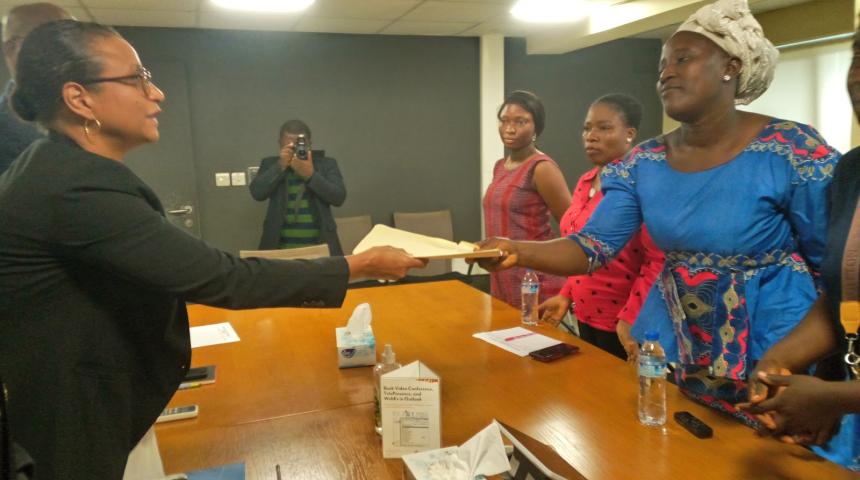The International Finance Corporation (IFC), a subsidiary of the World Bank Group, has been accused of allegedly enabling human rights violations by the Salala Rubber Corporation.
However, the accusation from Salala Rubber Corporation’s affected communities comes as the private sector arm of the Bretton Woods Institution stands accused of ignoring past complaints against the corporation, which include land grabs, water pollution, and harassment.
It can be recalled that the IFC provided a long-term loan of US$10 million to Salala Rubber Corporation to help rehabilitate and expand its plantations, optimize processing capacity, and increase employment.
Additionally, the loan, which is IFC’s largest agribusiness investment in post-conflict Liberia, has, according to the company’s affected communities, led to the destruction of their livelihoods.
They also claim that SRC workers only offer jobs to women in exchange for sex. “Your loan to Salala Rubber Corporation continues to marginalize and mistreat us, yet you have not taken action despite receiving multiple complaints,” Lorpu Pennue said in a petition to the IFC on behalf of the company’s affected communities.
“We have reported serious human rights abuses committed by the company since 2019, including land grabbing, water pollution, sexual harassment, and abuse, but the investigation by the IFC Compliance Advisor Ombudsman is still ongoing without any resolution.
“Our pleas for help have fallen on deaf ears. The situation is unbearable as our lands are being forcefully taken away, and our safety and dignity are compromised,” said Pennue, who claimed that she was sacked by Salala Rubber Corporation without any explanation. “We urgently need tangible results and, as the financiers, you have the power to make a difference.”
The Salala plantation has a history of alleged human rights abuses. The company, owned by Socfin, a Belgian and French agribusiness giant, has faced conflicts on its plantations in West Africa.
In 2019, 22 communities filed a complaint against Salala with the International Finance Corporation (IFC), alleging land grabbing, pollution of drinking water with pesticides, and harassment by local police towards those who spoke out.
According to the 61-page complaint, Salala used a $10 million loan from the IFC, violating the bank’s own rules on Indigenous rights, to convert the forests that were farmed and sacred to the communities into a large rubber plantation.
Salala denies these allegations and claims to have followed Liberian law when expanding the plantation since taking over in 2008. The IFC’s internal watchdog, the “compliance advisor ombudsman” (CAO), is currently investigating the complaint against Salala.
The CAO was established in 1999 following conflicts at development bank-funded projects worldwide. It reports to the boards of the IFC and World Bank, serving as a crucial accountability tool for communities whose rights have been violated by these projects.
“We, the women of these communities, do not have any place to go to solve this concern,” Pennue claimed in their petition to the IFC. “Salala security forces always threaten the women with rape and are always involved with sexual abuse such as pointing their flashlights at women while they using the bathroom or toilet.
“This attitude is so scary that the women are afraid of being raped if they travel after nightfall. So, on behalf of the affected communities, I present this petition to you; please, World Bank, we are asking you to look into this matter of what the company is doing to us,” she added.
Meanwhile, Alexandra Celestine, the IFC Resident Representative for Liberia and Sierra Leone, acknowledged the concerns raised by the women but clarified that the loan given to Salala had been repaid.
Celestinethen urged the community to continue working with the compliance advisory board, which is currently investigating the allegations.
“So, IFC is no longer an investor in the Salala plantation. However, we urged the community to continue working with the compliance advisory board, which is the ombudsman working with CSOs, pending their investigation.
“Our understanding is that the CSO will send a draft of the investigation report to us, the SRC, and the complainant for factual review and comments. When this review is completed, the final report will be made public,” Celestine said.

